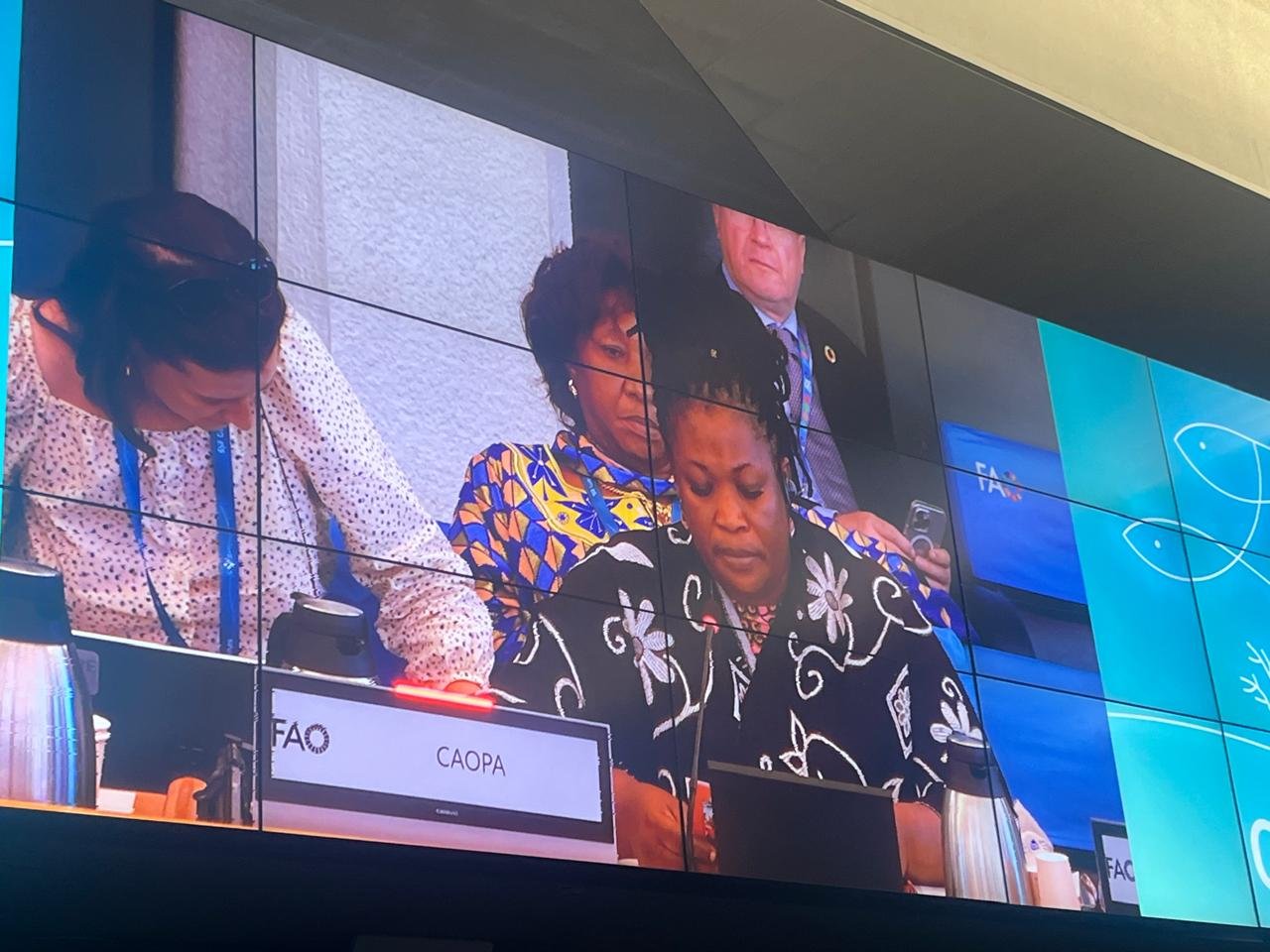The 36th session of the FAO Committee on Fisheries (COFI 36) was introduced by the findings of the State of World Fisheries and Aquaculture (SOFIA) report, which highlighted that in 2022, “for the first time in history, aquaculture surpassed capture fisheries,” taking up to 51% of the total aquatic animal production.
However, for small-scale fishers representatives, FAO and COFI members continue to avoid addressing the problem of intensive production of carnivorous species, which rely on feed produced from wild fish. As Felicito Núñez, a fisher from Honduras stated: “This model is not sustainable, nor can it become so.”
Despite the push for aquaculture, states continue to reaffirm the importance of capture fisheries and the need “to improve fisheries management measures.” In this regard, they insisted on the role of the newly created Sub-committee on fisheries management (COFI:FM) as the ideal fora to discuss and identify priority issues, including small-scale fisheries management. In their Call to Action, launched in 2022, small-scale fishers from five continents called for co-management of all coastal areas. “Small-scale fishing has a central role to play, with appropriate management approaches and tools,” said Laitia Tamata, the National Coordinator for the Fiji Locally Managed Marine Areas (FLMMA) Network. “We, artisanal fishers, call for closing inshore areas” to “secure priority access and tenure rights to small-scale fisheries and reduce the impact of other destructive and polluting activities.”
Following the debates of the first COFI:FM session last January, a backstage discussion of COFI 36 concerned the definition of small-scale fisheries, as this is becoming urgent following the developments on ocean governance in the international arena, including the WTO agreement on fisheries subsidies. However, the issue of an SSF definition was only openly addressed by small-scale fishers themselves in a joint statement: “the identification of small-scale fisheries is necessary for the implementation of policies that promote their protection and sustainable development.” They called for an approach such as the one proposed in the “Illuminating Hidden Harvests” report, which “enables a series of quantitative and qualitative characteristics of the fishery […] to be applied and weighted in order to identify its artisanal nature.”
Fisheries management as an essential tool for sustainability
FAO members also recommended that the COFI:FM should further discuss distant water fishing vessels “that are not subject to sufficient management and control” and that could potentially have impacts on small-scale fisheries. In an informal exchange of views co-organised by Madagascar and Germany, Dr. Paubert Mahatante Tsimanaoraty, the Madagascar Minister of fisheries and blue economy shared his expectations from access arrangements with distant water fishing nations and Mr. Gaoussou Gueye, president of the pan-African platform of non-state actors in fisheries (Afrifish-net), talked about the impacts of these arrangements on artisanal fishing communities.
In a Speaker’s Corner later in the week – the short version for side events at this COFI 36 –, the co-organisers delivered the messages from the exchange of views. Mr. Gaoussou Gueye called for “harmonising minimum conditions of access to guarantee sustainable and equitable fishing” as “an essential element in ensuring fair treatment for all fleets, while guaranteeing the development prospects of local fishing communities.” FAO was further encouraged by its members to continue the work on Distant-water Fisheries Access Arrangements.
Absent from the agenda, artisanal fishers make their voice heard
On small-scale fisheries, more specifically, FAO members “recognized the importance of the SSF summit” which was held during the 3 days prior to COFI 36 and continued to encourage the Summit to be held every two years. However, the participants to the SSF summit regretted the paradox of having a forum adjacent to COFI which brought together artisanal fishers from all over the world, and then not having an item on SSF on COFI 36 agenda. Despite this omission, SSF were well represented during the COFI, with more than a dozen men and women, and were able to intervene on several items of the agenda, shining light on their perspectives in the debates.
Ms. Raissa Madou, a fish processor from Côte d’Ivoire, intervened, as an observer, during the discussion on fish trade and denounced the fact that despite the provisions enshrining the free movement of goods and people, “in practice there are still many barriers to regional trade in fisheries products, including harassment of women at processing sites, markets, along trade routes and at border controls.” Mr. Nana Kweigyah, a fisher from Ghana, intervened during the discussions on the fight against IUU fishing and asked FAO to organize a discussion on participatory surveillance: “participatory surveillance has been touted for several decades in Africa, but it has not been legally defined in most countries and generally lacks administrative, logistical and financial support.”
In a Speaker’s Corner on the role of artisanal fisheries in marine conservation, Ms. Djalikatou Cherif Haidara, a fish processor from Guinea, recalled that “our catches account for at least 40% of total catches, thanks to operations that often take place in areas of great biodiversity.” She read a joint statement in which SSF ask for “particular attention when it comes to determining how to integrate biodiversity into fisheries management.” In this regard, SSF welcome “FAO's commitment to extend its support to small-scale fisheries in our role as guardians of resources” and asked FAO to support “existing and new community-based and conservation initiatives.”
Banner photo: The artisanal fisheries landing site of Cotonou, in Benin, by CFFA.









Hand in hand with financial giants, environmental NGOs wield increasing influence over natural resource management in debtor nations, undermining their sovereignty. The author warns against the rising financialization of conservation and calls for safeguarding the rights of local populations from the expanding influence of US financial interests.